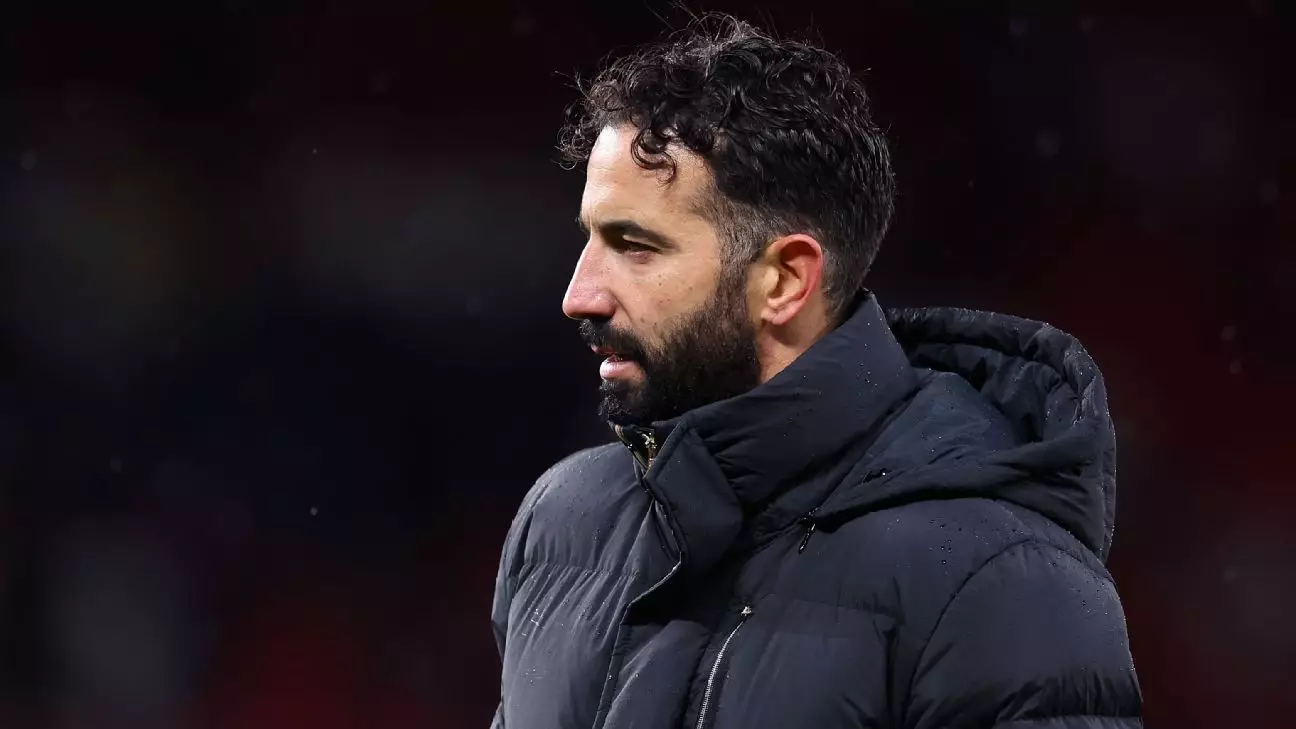Manchester United’s recent performances have sparked a wave of criticism, especially following their shocking 3-2 defeat to Nottingham Forest at Old Trafford. The defeat, which marked Forest’s first win in Manchester in three decades, has not only illustrated the struggles the team faces but has left head coach Ruben Amorim with a mountain of challenges ahead. This article explores the implications of recent results, the systemic issues within the club, and the uphill battle that lies ahead for Amorim.
When Manchester United faced Nottingham Forest, the stark contrast in their paths was evident. United, a team historically rich in triumphs, has been grappling with decline while Forest, having returned from the EFL Championship, claimed an unexpected victory. United’s season has been marred by inconsistency, and with co-owner Sir Jim Ratcliffe labeling the club as “mediocre,” the pressure mounts. The defeat against Forest served as a resounding echo of this sentiment. Fans and analysts alike are left questioning how a club of United’s caliber can fall to such despair, especially against teams they should dominate.
The game against Forest showcased a United side fraught with issues—most glaringly, poor defensive performances. The opening goal by Forest, coming within 90 seconds, revealed the defensive frailties that have persisted for too long. Lisandro Martínez’s failure to contest for a header marked just the beginning of a cascading series of errors that would unravel United’s hopes.
Amorim has placed significant emphasis on tactical discipline since taking the helm, yet the match against Forest raised questions about the execution of those tactics. It seems irrelevant how meticulously a coach designs a game plan when players commit such fundamental mistakes. After the initial lapse, the team continued to falter. The crucial second goal conceded, stemming from a botched clearance during an errant pass from Bruno Fernandes, was a testament to the synonymous lack of cohesion, focus, and accountability.
Goalkeeper André Onana’s mishap further underlines the pressure brewing within the squad. The Cameroonian’s failure to parry a straightforward shot highlighted a lack of confidence that, if persisting, could sabotage the team’s entire campaign. Such blunders are not merely individual lapses; they reflect a deeper systemic issue within a team still searching for its identity amidst turmoil.
Post-defeat, Amorim described the journey ahead as a “long one,” acknowledging the weight of expectations associated with managing Manchester United. His philosophy centers around continual improvement, yet in a club that demands immediate results, this approach may be tested as the season progresses. With forthcoming matches in both the UEFA Europa League and an intense Manchester derby on the horizon, the immediacy of the situation is palpable.
The short-term challenges are daunting. The team’s current position—13th in the Premier League with merely 19 points—reveals a frightening reality, the lowest points tally after 15 matches since the 1986-87 season. For a club that boasts a legacy of excellence, this is ground zero from which Amorim must rebuild. The psychological strain on the players, compounded by the mounting pressure from the media and supporters, poses a significant barrier to their mental resilience.
As United grapples with these challenges, it’s vital to note that the road towards redemption will require collective responsibility from both players and coaching staff. Amorim has inherited a squad that needs recalibration—not just in tactics, but also in mentality. Each player must hold themselves accountable, recognizing that their individual actions impact the collective output. Only through fostering a culture of resilience and commitment can the team hope to secure the performances that fans expect and deserve.
Following the defeat to Nottingham Forest, Amorim’s remarks shed light on the mindset necessary to turn this tide. He stressed the importance of consistency and incremental progress, emphasizing that everyone within the club must embrace the challenge ahead. While the history of United is rich with accolades, this moment serves as a reminder of the unpredictable nature of football where every team, irrespective of reputation, must earn their respect on the pitch.
Manchester United stands at a crossroads as they confront the ramifications of recent mediocrity. Ruben Amorim’s ascent to the managerial role comes with enormous expectations, navigating uncharted territories. The task at hand requires not only tactical ingenuity but also fostering a renewed sense of unity within the team. The failures highlighted against Nottingham Forest should serve as a catalyst—a sobering wake-up call to rise from the ashes and reclaim the illustrious legacy associated with the club. Only time will tell if this will be the turning point in the storied history of Manchester United or merely an indication of a deeper malaise that needs urgent attention.
